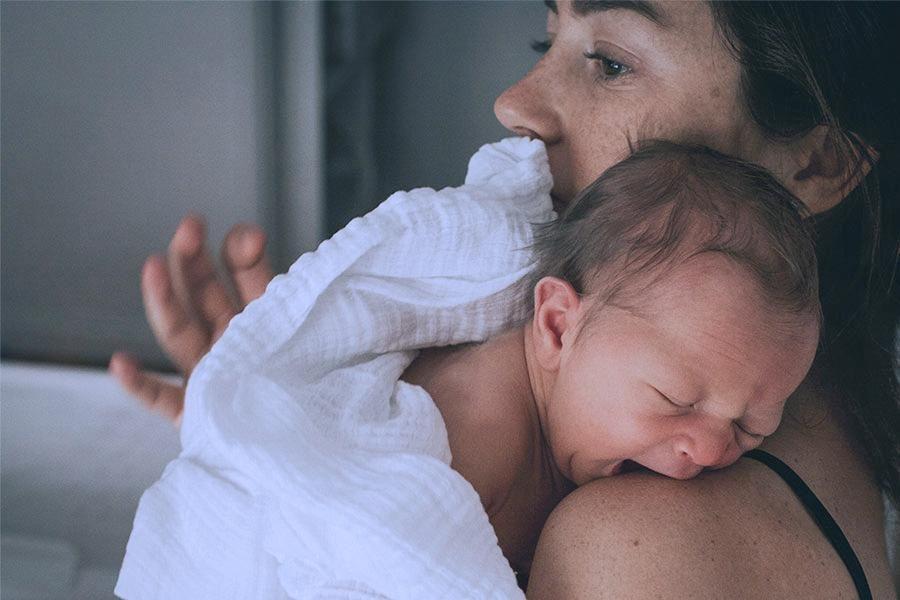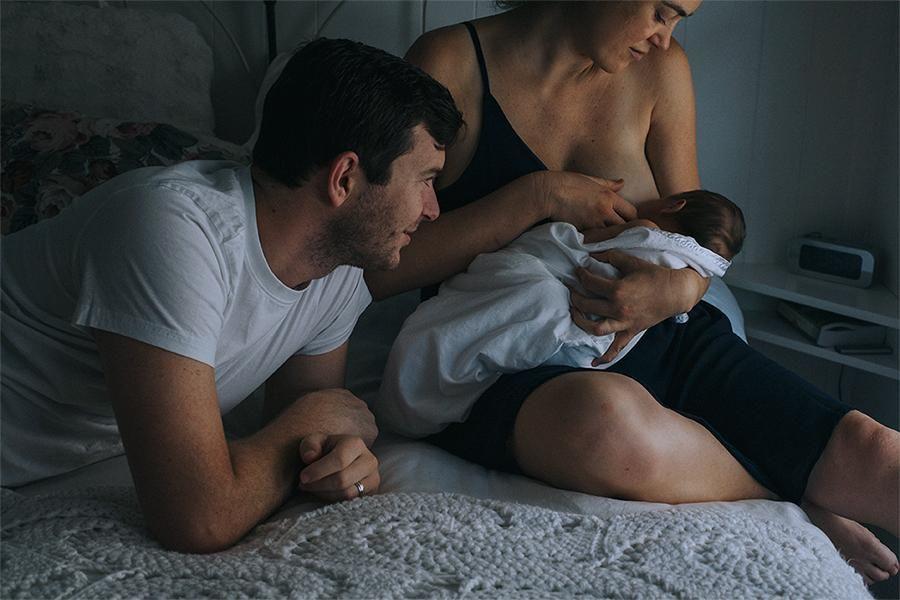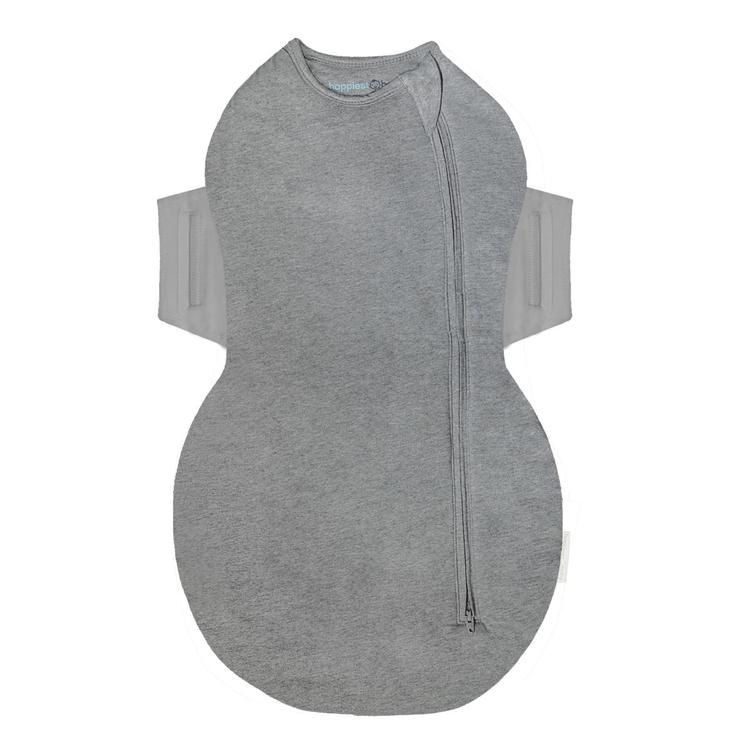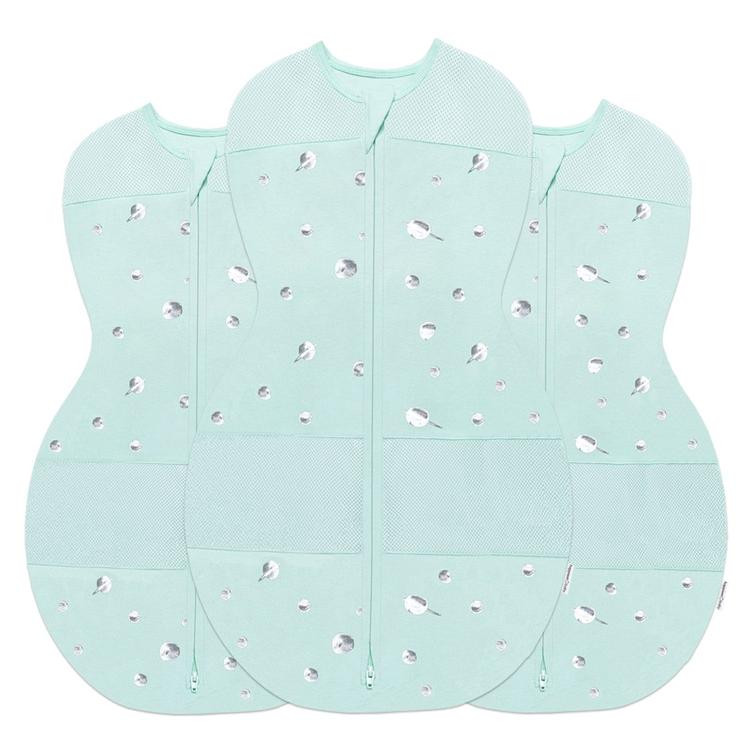BABY
The Importance of the Flu Shot for Babies...and You!
Keep your family safe during flu season.

Written by
Dr. Harvey Karp

Flu Shot for Babies
Flu season is here again… and it is time to think about protecting yourself and your babies, toddlers, and big kids! And, while it is important to get your flu shot every year, it might be extra important this year. Some experts are worried that a twindemic—a severe flu season on top of COVID cases—will stress already-overwhelmed hospitals if people decide to forgo flu shots. Doctors anticipate that this season will be worse than last season, since last year many schools were closed and more people were masking and distancing.
Here are some fast flu facts and tips for how to stay healthy throughout flu season...
Fast Flu Facts
First things first…what is the flu?
The flu is a viral infection that mostly affects the breathing passages (from the nose to the lungs) and can even affect the brain and entire body. If you are suffering from the flu, you will have a fever (38°C or higher), cough, sore throat, headache, muscle aches and extreme fatigue. No fun, right? Unlike the common cold, the flu (also known as influenza) can knock you out for one to two weeks…and by weakening your immune system for many weeks…long after the flu is over! It commonly leads to serious secondary infections, like sinusitis or pneumonia.
The flu is especially hard on vulnerable populations.
Kids younger than 5 years old are vulnerable because their immune systems are still immature. And, seniors over 65 often have frail immunity, too...which can push them into serious secondary illnesses. In fact, seniors are two to three times more likely to suffer a heart attack in the month after the flu. Between 291,000 and 646,000 people worldwide die from seasonal influenza-related respiratory illnesses each year.
How does the flu spread?
Influenza is highly contagious (especially a few days before you come down with symptoms and for the entire time you have fever). It is spread two ways: 1) by touch (a sick person touches their nose or mouth and then deposits the germs by touching a door knob, restaurant menu or elevator button and 2) through tiny droplets from sneezing, coughing, or talking.
These points underscore why doctors believe flu shots are so important!
What to Know About the Flu Shot for Babies
Flu shots are recommended for kids 6 months or older, according to the National Health Service. Babies and toddlers getting the flu shot for the first time need two doses with four weeks in between. If your child has an egg allergy, it is still safe for them to receive the vaccine.
Why do kids need two flu shots?
Babies under 2 and children who have never received the flu shot before need two doses of the flu shot—administered about four weeks apart—because they are less likely to have come in contact with the virus. The first shot primes their little immune systems, while the second helps them develop flu-fighting antibodies.
How long does it take for a child’s body to be immune to the flu after getting the flu shot?
It takes up to two weeks for the body to become immune to the flu after the second shot. Remember, if your child needs two shots but has only gotten a single shot, it will not protect them from the flu.
What are the side effects of the flu shot for infants?
Possible side effects of the flu shot for babies include:
- Soreness or redness in the area of the flu shot
- Swelling in the area of the shot
- Headaches
- Mild fever
- Nausea
- Muscle aches
Do flu shots for babies and toddlers contain mercury?
Ask for a shot from a single-dose, mercury-free vial. Multi-dose vials contain a mercury-based preservative to kill bacteria introduced by repeated needle penetrations into the vial. With a single dose vial, mercury is not necessary.
Pregnant women should also receive the flu shot (from a single-dose vial). The shot does not contain live viruses, so it is safe for the fetus inside.
It can be hard watching your little one get pricked by a needle. Once your child is over 2 years old, you can choose to give the vaccine as an injection or as a nasal spray.
When is the best time to give baby the flu shot?
Ideally, it is best to get vaccinated by Halloween, but you can still get it through February...late is better than never!
Final Thoughts on Flu Shots for Babies
Unfortunately, influenza is a pretty sneaky infection. You can still catch it even after getting the vaccine, but the illness will likely be less intense than if you did not get the shot. And, by getting the shot, you will be helping protect your friends and neighbors—especially those struggling with serious illnesses—by doing your part to build to your community’s 'herd immunity.'
Related stories:
- 9 Ways to Protect Babies From Germs
- How to Help Your Baby Through Cold and Flu Season
- When Can a Baby Have Cold Medicine?
Disclaimer: The information on our site is NOT medical advice for any specific person or condition. It is only meant as general information. If you have any medical questions and concerns about your child or yourself, please contact your health provider. Breastmilk is the best source of nutrition for babies. It is important that, in preparation for and during breastfeeding, mothers eat a healthy, balanced diet. Combined breast- and bottle-feeding in the first weeks of life may reduce the supply of a mother's breastmilk and reversing the decision not to breastfeed is difficult. If you do decide to use infant formula, you should follow instructions carefully.
SHARE THIS ARTICLE
PARENT PICKS
Bestsellers



















